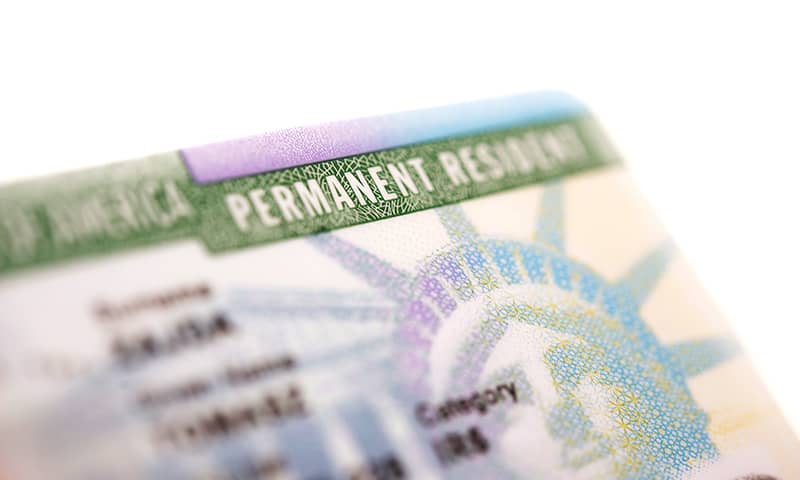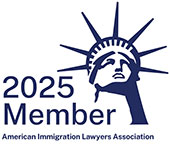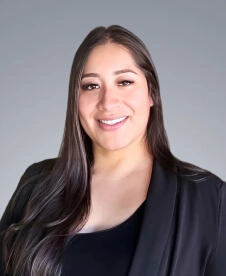Starting a new life in the United States as a refugee or asylee can be incredibly challenging. While your status provides temporary protection, you may be dreaming of establishing permanent residence in this country you now call home.
The good news is that refugees and asylees may apply for lawful permanent residence (a green card) after being present in the U.S. for a certain period of time. Green cards allow recipients to live and work in the U.S. permanently.
Our asylum lawyers at the Law Office of Lina Baroudi in San Jose will walk you through the eligibility requirements, application process, and everything else you need to know about obtaining a green card as a refugee or asylee. With this information, you can determine if and when you might qualify for permanent residence.
Why Apply for Lawful Permanent Residence Status?
The government gives, and the government takes away.
USCIS could revoke a grant of asylum or refugee status, even many years after the immigrant arrives in the United States, if:
- Congress changes the definition of refugee or asylee, and you no longer meet the criteria or
- Conditions in your home country substantially change, so, in the opinion of the USCIS, it’s safe to go back.
The political wins in Washington often radically change direction once every four years. Displaced people have already been forced out of their home countries. Our legal team at the Law Office of Lina Baroudi works hard to ensure they aren’t forced out of their adopted home country.
Do You Meet the Eligibility Requirements?
To qualify for a green card, refugees and asylees must meet certain requirements.
- You must have been admitted to the U.S. as a refugee or granted asylum
- You must have been physically present in the country for at least one year.
- Your status has not been terminated.
- You are not subject to any grounds of inadmissibility under immigration law, including criminal offenses, security risks, and public health concerns.
- You have not resettled in any foreign country.
- You must file form I-485, Application to Register Permanent Residence or Adjust Status.
How to Apply for Your Green Card as a Refugee or Asylee
Once you determine you are eligible, obtaining a green card involves gathering documents, completing forms, paying fees, and attending biometrics and interview appointments. Here are the steps:
Gather Required Documents
You will need to provide proof of your refugee or asylee status, such as an I-94 arrival/departure record or the USCIS letter granting you asylum. Documents establishing your continuous physical presence in the U.S. for one year are also required.
Other essential forms and documents include:
- Form I-485 green card application
- Medical examination records
- Two passport photos
- Form I-765 to apply for an employment authorization document
- Filing fees or fee waiver request
File Your Adjustment of Status Application
You must mail your completed I-485 application along with supporting documents to USCIS for processing. Application fees are around $1,140, but fee waivers are available for those who qualify.
Once your application is received, you will get receipt notices in the mail. USCIS will schedule you to provide fingerprints and photographs (biometrics) at your local application support center.
Attend Necessary Appointments
Most green card applicants must attend a biometrics appointment and an in-person green card interview with a USCIS officer. This gives you a chance to provide additional documentation if needed. USCIS will also conduct background checks.
It can take anywhere from six months to over two years to get a decision on your green card application after filing. You can check your case status online using the receipt numbers you received.
Life After Getting Your Green Card
If approved, your actual green card should arrive in the mail within a few weeks. As a lawful permanent resident, you can now live and work anywhere in the U.S. indefinitely.
Five years after the “Resident Since” date on your green card, you may choose to apply to become a U.S. citizen through naturalization. Since green cards are backdated by one year for asylees and to the date of entry for refugees, your eligibility for naturalization will be quicker than for most people. Remember, you’ll also need to uphold your permanent resident status by avoiding extended trips abroad and other actions that may be seen as abandoning your U.S. residence.
Green card holders can also petition to bring over certain family members, like spouses, unmarried children under 21, and parents in some cases.
While approval rates are high, some green card applications are denied. This might happen if USCIS finds you do not actually meet all eligibility requirements. Or you could be found inadmissible due to certain criminal offenses, security issues, health problems, or other grounds.
If your green card is denied, you have the right to file a motion to reopen or reconsider, or you may want to re-file your application. Having an experienced immigration attorney review your options can significantly improve the odds that any motion or refiling will be successful.
Count on a Thorough Immigration Attorney
As an asylee or refugee, there are many reasons you may consider adjusting your status. Whatever your reason, our asylum lawyers can help you put together a compelling green card application and file it with USCIS.
As lawful permanent residents in the United States, refugees and asylees can, at last, stop looking over their shoulders and build lives for themselves and their families in the United States.
For a confidential consultation with an experienced immigration lawyer, contact the Law Office Of Lina Baroudi. The sooner you reach out to us, the sooner we start working for you.





















